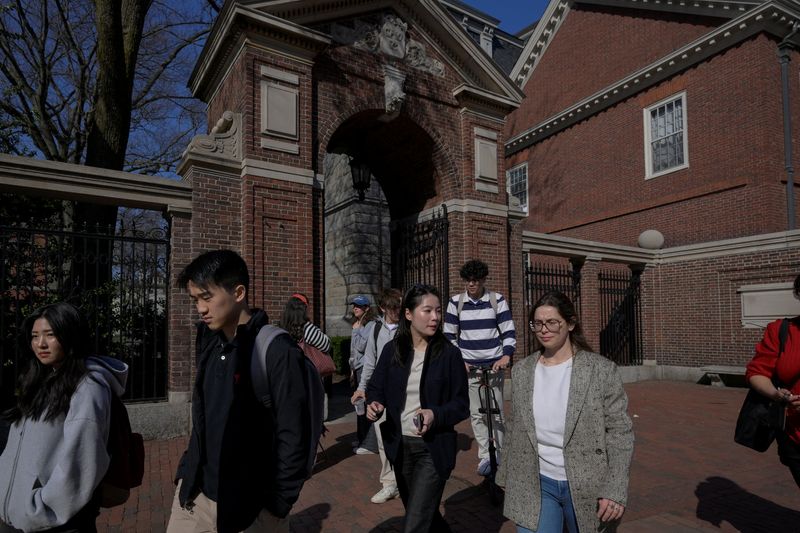Republicans Push Forward Bill With Deep Cuts to Medicaid Under Trump Agenda
On Wednesday afternoon, Republicans on the House Energy and Commerce Committee moved forward with legislation that includes reductions to Medicaid and healthcare stipulations—some of the most disputed and divisive components set to be part of President Trump’s comprehensive and grand legislative plan known as his “big, beautiful bill.”
The panel voted along party lines 30-24 after a marathon meeting that lasted more than 26 hours with just two breaks for House votes. The bill now heads to the House Budget Committee, which will meet Friday morning to combine it with legislation from other committees advancing Trump’s priorities — namely the extension of tax cuts and new tax breaks for tips and overtime pay
The Energy and Commerce Committee had the responsibility of identifying $880 billion in savings over ten years, with a significant portion resulting from reductions in Medicaid expenditures.
The
GOP plan calls for
States can enforce work mandates on individuals aged 19 to 64 without dependents, allowing some exceptions. This halts an established method where states taxed healthcare providers to fund their Medicaid programs and increase federal matching funds. The legislation imposes penalties on states providing Medicaid coverage to people who entered the U.S. illegally. Additionally, it formalizes adjustments suggested under the Trump administration to reduce the duration of the Affordable Care Act’s open-enrollment window, along with numerous other stipulations.
The provisions
would lead to 10.3 million individuals
losing Medicaid coverage by 2034 and 7.6 million people going uninsured, according to a partial analysis by the Congressional Budget Office (CBO).
Democrats repeatedly cited some other CBO estimates that projected millions more losing health coverage, which Republicans
said was misleading
.
“It’s clear that all this bill does is take away health care for millions of Americans in order to pay for giant tax breaks for billionaires and big corporations. And that’s not what the American people want,” ranking member Frank Pallone Jr. (D-N.J.) said.
Republicans argued the decline in insurance would be mostly among those who entered the U.S. without permission and “able-bodied” adults who should be working. They accused Democrats of misrepresenting the impact to score political points.
“Our priority remains the same: strengthen and sustain Medicaid for those whom the program was intended to serve: expectant mothers, children, people with disabilities, and the elderly,” Chair Brett Guthrie (R-Ky.) said in his opening statement, adding that the reforms will “return taxpayer dollars to middle-class families.”
The hearing turned heated at points. Participants would sometimes throw barbs at one another.
“If I could roll two eyes, I would,” Rep. Dan Crenshaw (R-Texas), a veteran who wears an eyepatch, said in the markup of Democrats’ arguments.
Crenshaw accused Democrats of spreading lies, leading to a back-and-forth about whether that was permissible of him to say. “My message to all of you who were tricked into being here, guess what, your Medicaid benefits aren’t at risk under this bill, full stop. They’re using you, and they’re lying to you,” Crenshaw said.
During the first hour alone, Republicans’ opening statements were interrupted by protesters angry about the plan to cut Medicaid. U.S. Capitol Police
arrested 26 demonstrators
, many in wheelchairs, who held up the proceeding shortly after it began. The group Popular Democracy in Action took credit for that protest.
The length of the markup was in itself a protest from the committee’s Democrats, who forced Republicans into many votes on ill-fated amendments. House Minority Leader Hakeem Jeffries (D-N.Y.) made a late night appearance at the hearing at one point to also show opposition to Medicaid cuts.
That all-night, marathon markup was a physical feat for some members. Rep. Debbie Dingell (D-Mich.) appeared to doze off during the hearing.
Rep. Richard Hudson (R-N.C.) mentioned he has been subsisting on energy drinks, fruits, and nicotine pouches.
I’ve consumed four cans of Celsius,” Hudson stated. “This is my third can of Zyn.
The healthcare segment was the last part of the Energy and Commerce bill that legislators discussed during an extensive session starting midafternoon on Tuesday. This debate also encompassed topics such as energy, environmental issues, and telecommunications.
It also
repeals numerous programs
passed by the Democrats in their 2022 bill that sought to combat climate change and pollution. This includes a $20 billion “green bank” program that provides financing institutions with money to fund climate-friendly projects and a $3 billion block grant program that seeks to reduce pollution in disadvantaged communities.
However, Medicaid has emerged as the main point of contention during the Republican discussions about implementing Trump’s policies, with moderate party members and those representing swing districts being cautious about the potential electoral repercussions of backing substantial reductions to this widely supported initiative.
The more centrist and susceptible legislators achieved some victories as the drafters of the legislation decided against reducing the federal matching rate for Medicaid, referred to as the federal medical assistance percentage (FMAP). Additionally, they excluded a limit on Medicaid expenditures per person.
At the same time, fiscal conservatives have pushed for substantial reductions. Among them, Freedom Caucus Chairman Andy Harris (R-Md.) and Representative Chip Roy (R-Texas), claimed that the proposal fails to sufficiently reduce Medicaid expenditures.
“The proposal to stop waste, fraud, and abuse in Medicaid will do little to achieve that,” Harris wrote Tuesday evening
in a post on social platform X
.
Some of those members said Wednesday
they are looking for changes to the Medicaid provisions before supporting it ahead of a projected floor vote next week. One of their main complaints was that the new work requirements would not take effect until 2029 — with members saying they could not expect that to actually happen if the start date is so far in the future.
“In my view, they aren’t doing enough,” stated Representative Eric Burlison (R-Mo.), a member of the House Freedom Caucus who opposes the package.
Representative Ralph Norman (R.S.C.), a member of the Freedom Caucus known for his focus on reducing deficits, stated that he desires “significant” modifications.
I’m not making this claim to achieve anything specific for South Carolina,” he stated to journalists following the meeting. “My aim is to sort out the financial calculations needed to put the nation’s economy back on course, but it simply hasn’t occurred yet.
At the opposite end of the political landscape—and Capitol—some Republicans with a stronger focus on populism are cautioning against significant changes to Medicaid.
Penning “Monday” in The New York Times
Senator Josh Hawley from Missouri stated that severe reductions were “morally incorrect and politically disastrous.”
These requests for further modifications and refinements to the bill prior to the voting session in the House chamber will
create a challenge
For Speaker Mike Johnson (R-La.), bridging the gap with a narrow majority will be essential to passing the legislation before his self-imposed Memorial Day deadline and then forwarding it to the Senate.
Rachel Frazin contributed.
Copyright 2025 Nexstar Media, Inc. All rights reserved. This material may not be published, broadcast, rewritten, or redistributed.
For the latest news, weather, sports, and streaming video, head to WJTV.





